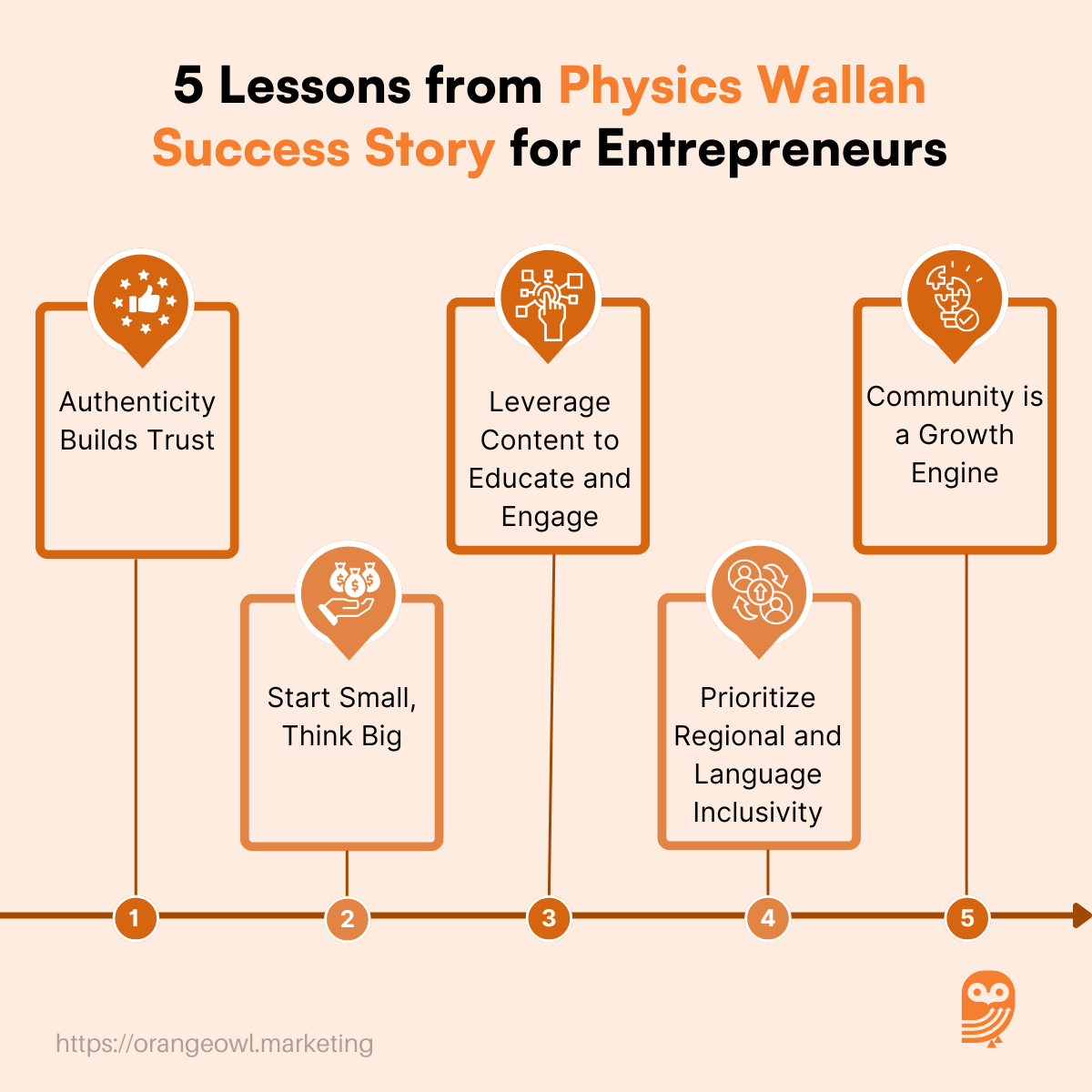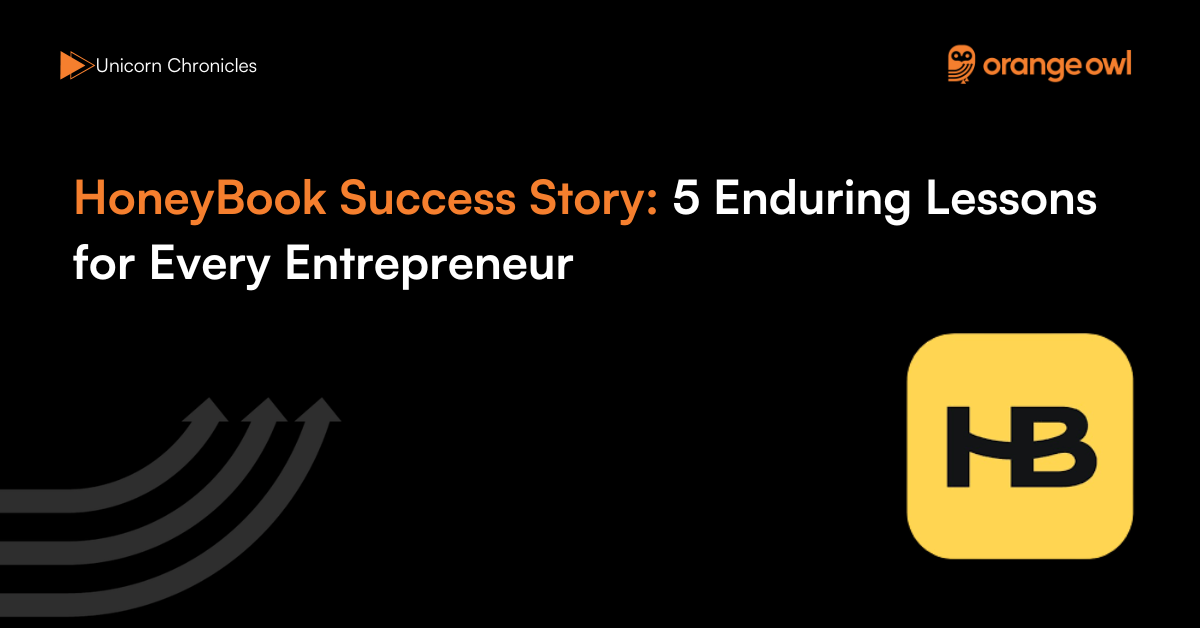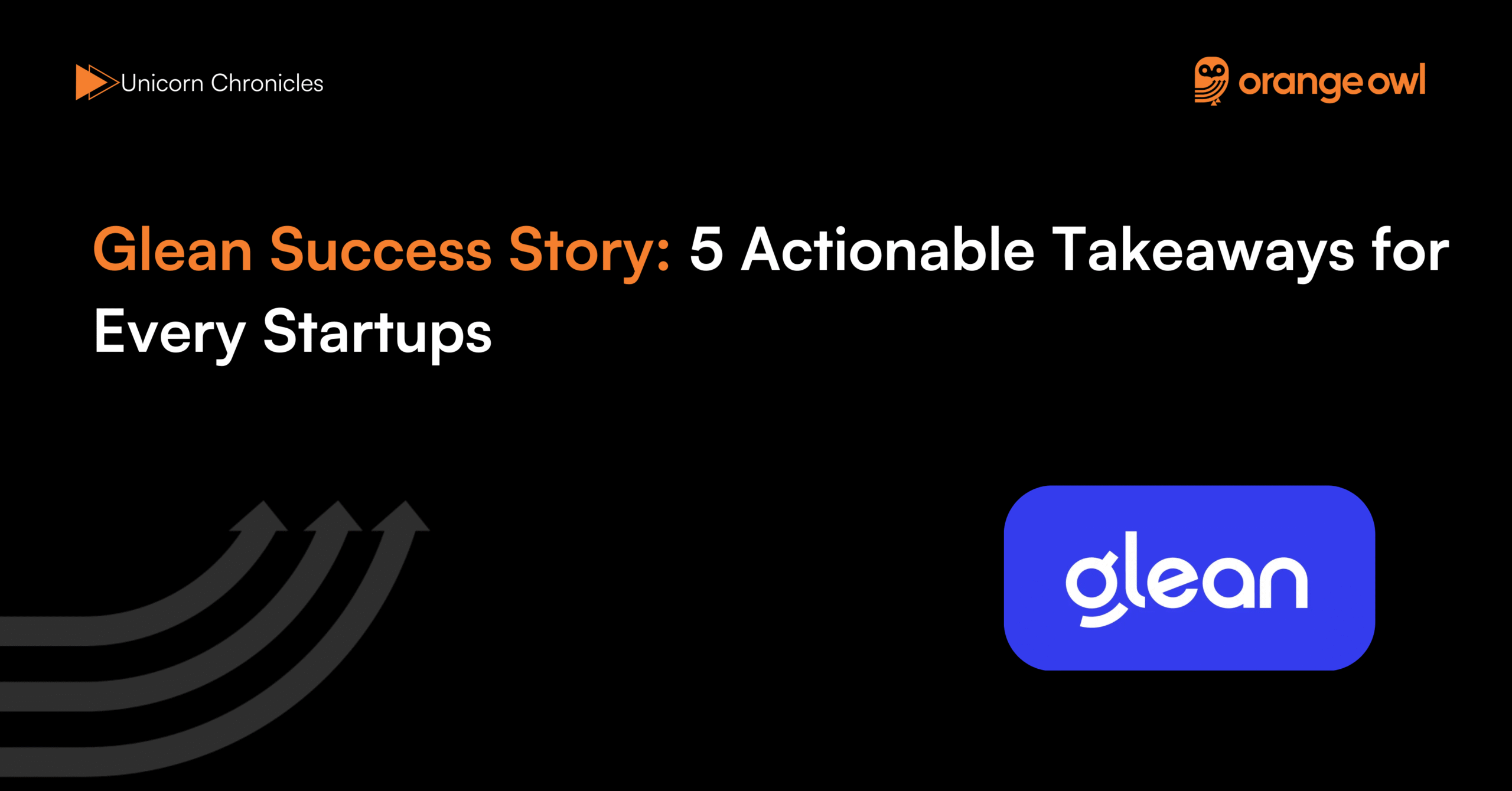Physics Wallah Success Story: 5 Impactful Lessons for Every Entrepreneur
Vivek Goel
June 17, 2025

Table of Contents
Introduction
In a country where quality education remains out of reach for many due to high costs and limited accessibility, Physics Wallah has emerged as a groundbreaking force, making learning affordable and accessible to millions of students. Founded in 2016 in Noida by Alakh Pandey and Prateek Maheshwari, Physics Wallah operates as an online platform offering live courses for competitive exams such as JEE and NEET, along with school-level classes.
From its humble beginnings, Physics Wallah has rapidly grown into one of India’s most promising edtech startups, securing $312 million in funding from investors such as WestBridge Capital and Hornbill Capital. With a current valuation of $3.7 billion, it stands tall among over a thousand competitors, including well-known names like Vedantu, GoStudent, and Varsity Tutors.
Physics Wallah’s mission extends beyond just providing courses — it aims to democratize quality education by offering affordable, live, and interactive learning experiences that cater especially to students from smaller towns and underserved regions. Its mobile-friendly and community-driven approach empowers learners to overcome traditional barriers, bridging the education divide in India.
As Alakh Pandey often says, “Education is not just for the privileged—it’s a right for everyone.” Physics Wallah is not just building a platform; it’s building a movement that brings high-quality education to the fingertips of millions, transforming India’s education landscape one student at a time.
Origin Story
The journey of Physics Wallah began with Alakh Pandey’s deep-rooted passion for teaching and his desire to make quality education affordable and accessible to every student in India. Long before Physics Wallah became a unicorn, Alakh was a simple physics teacher from Prayagraj (Allahabad) who started creating free educational content on YouTube in 2016. What started as a hobby soon turned into a mission to break the barriers of expensive coaching institutes that many students could not afford.
Alakh’s personal experience and observations revealed a harsh reality: students from small towns and rural areas had limited access to quality coaching for competitive exams like JEE and NEET. Traditional coaching centres were concentrated in metro cities and often charged fees that were out of reach for most families. Meanwhile, online platforms that existed were either too expensive or lacked the personalised touch that students needed to succeed.
Driven by this realisation, Alakh, along with his co-founder Prateek Maheshwari, launched Physics Wallah as a platform that would provide live, interactive, and affordable courses for students across India. Their approach was simple but revolutionary — offer quality teaching through digital channels at a fraction of the cost of traditional coaching.
Alakh’s empathetic connection with students shaped the ethos of Physics Wallah. He often shared stories of how he interacted with students, understood their struggles, and designed content that was easy to grasp and exam-focused. This hands-on, student-first approach quickly built a loyal community that trusted Physics Wallah not just as a coaching platform but as a friend and guide.
As Alakh Pandey often reflects,
“My goal was never to build a business but to build a movement where no student is left behind because of a lack of resources.”
This commitment to inclusivity and affordability has been the foundation on which Physics Wallah grew from a YouTube channel to a billion-dollar edtech startup, transforming the education landscape of India one learner at a time.
Business Space and Early Challenges
Physics Wallah entered the highly competitive and fast-evolving online education space in India, a market flooded with numerous players ranging from established coaching institutes going digital to emerging edtech startups. Despite the crowded landscape, the company carved its niche by focusing on affordability and accessibility for students from small towns and rural areas, who were often ignored by premium edtech platforms.
The Indian competitive exam preparation market was traditionally dominated by expensive coaching centres located mostly in metro cities like Delhi, Mumbai, and Bengaluru. Students from lower-income families faced the dual challenge of high fees and lack of quality teachers nearby. Online education was still in its infancy, and many platforms priced their courses beyond the reach of the average student. Additionally, internet penetration and digital literacy outside urban centres were limited, creating a barrier to scale.
Physics Wallah’s early challenges were, therefore, multifold. The biggest hurdle was winning the trust of students and parents sceptical about online coaching. Many were accustomed to the in-person coaching model and found it difficult to switch to digital classes. Alakh Pandey’s initial content was free on YouTube, which helped build credibility and a loyal user base. However, monetising the platform without losing the affordability edge was a delicate balance.
Another significant challenge was ensuring high-quality, personalised teaching at scale while keeping prices low. Unlike established players with large teams and resources, Physics Wallah had to innovate with lean operations and technology. They also had to address connectivity issues and varying digital skills among students, building an easy-to-use platform compatible with low-bandwidth conditions.
Alakh’s hands-on approach to understanding student pain points played a critical role. He frequently engaged directly with learners through social media and online communities, gathering feedback to continuously improve course content and delivery. This grassroots connection helped Physics Wallah tailor its offerings to the real needs of its users rather than just following industry trends.
Despite launching well before the COVID-19 pandemic, Physics Wallah was well-positioned to respond to the sudden surge in demand for online education during lockdowns. Their affordable pricing, regional language options, and student-first ethos made them a preferred choice for millions of students suddenly cut off from traditional coaching centres.
This focus on accessibility, affordability, and empathy enabled Physics Wallah to not only survive but thrive in an intensely competitive edtech space, transforming the lives of countless aspirants across India.
Growth Strategies
Physics Wallah’s impressive growth is grounded in a deep understanding of its core audience, a student-first approach, and innovative use of technology to democratise quality education across India’s diverse regions. Unlike many edtech platforms that initially focused on urban, English-speaking students, the Physics Wallah success story lies in recognising the massive untapped potential in Tier 2 and Tier 3 cities and rural areas.
At the heart of its growth strategy is affordability and accessibility. The company deliberately priced its courses at a fraction of the cost charged by traditional coaching centres and rival platforms. This made high-quality exam preparation available to students from lower-income families who otherwise had limited options. Offering live interactive classes, recorded lessons, and personalised doubt clearing helped Physics Wallah build a loyal and engaged student base.
Another key pillar of the Physics Wallah success story was leveraging free content on YouTube, where founder Alakh Pandey personally taught thousands of students. This served as a powerful marketing funnel, building trust and credibility long before the company monetised its offerings. The free content also helped break barriers for students hesitant about online learning, enabling them to experience Physics Wallah’s teaching style risk-free.
The platform was designed with lightweight technology to support low-bandwidth environments and limited smartphone capabilities. Additionally, by offering courses in multiple regional languages, Physics Wallah expanded its reach beyond metros, directly appealing to vernacular learners—a key differentiator from many competitors.
Physics Wallah also heavily invested in community engagement via WhatsApp groups, social media, and online forums. These channels enabled students to connect, collaborate, and seek guidance from peers and instructors, enhancing retention and driving referral-based growth.
Strategic collaborations with schools, coaching centres, and local educational institutions helped the company expand into new markets. Through data analytics, Physics Wallah gained insights into student behaviour, allowing it to optimise course design and offer personalised learning paths, significantly improving student outcomes.
Finally, the COVID-19 pandemic served as a major inflection point in the Physics Wallah success story. As physical coaching centres shut down, the company rapidly scaled its digital infrastructure, capitalised on rising demand, and became a trusted education partner for millions. Its student-friendly pricing, regional language support, and real-time doubt-clearing positioned it as a go-to platform during the crisis.
This combination of empathy-driven pedagogy, technology-led delivery, and a commitment to inclusive education has transformed Physics Wallah from a small YouTube channel into a multi-billion-dollar edtech unicorn, redefining India’s competitive exam coaching ecosystem.
Marketing Strategies
Physics Wallah’s marketing success is deeply rooted in authenticity, community engagement, and targeted digital outreach. The company has built a strong brand by connecting directly with students’ needs and aspirations, rather than relying solely on traditional advertising.
A cornerstone of its marketing approach has been leveraging the founder’s personal brand. Alakh Pandey’s journey from a passionate teacher sharing free lessons on YouTube to leading a top edtech platform resonates deeply with students. His relatable teaching style and genuine care for learners have created a powerful emotional bond, turning many viewers into loyal paying customers. This personal touch humanises the brand and builds trust at scale.
Physics Wallah has also mastered the art of content marketing, using platforms like YouTube, Instagram, and Telegram to deliver valuable, free educational content. This strategy not only attracts millions of organic followers but also nurtures a community of engaged learners who actively share and recommend the platform to peers.
Targeted regional language campaigns have been crucial in expanding reach beyond metros. By producing promotional material and course content in Hindi, Telugu, Tamil, and other vernacular languages, Physics Wallah has captured a vast audience in Tier 2 and Tier 3 cities who are often underserved by other edtech players.
To further boost visibility, the company uses performance-driven digital advertising on Facebook, Google, and other social platforms, carefully crafting ads that address common student challenges like exam stress, affordability, and doubts about online learning. These campaigns combine motivational messaging with clear calls to action, encouraging sign-ups and course enrollments.
Physics Wallah’s marketing strategy also embraces community-driven growth. Active WhatsApp groups, student forums, and peer-to-peer support channels have transformed users into enthusiastic brand advocates. This organic word-of-mouth, powered by students’ genuine success stories, remains one of the most effective ways the company acquires new learners.
Finally, Physics Wallah runs referral programs and flash sales that incentivise students to invite friends and family, helping rapidly scale user acquisition at a low cost. These campaigns are often timed around exam seasons, creating urgency and boosting enrollments.
By combining founder-led authenticity, free value-rich content, regional language focus, and strong community engagement, Physics Wallah’s marketing has successfully disrupted India’s competitive exam coaching market, making quality education accessible and aspirational for millions.
5 Impactful Lessons for Every Entrepreneur
1. Authenticity Builds Trust
In a crowded edtech space, authenticity became Physics Wallah’s biggest differentiator. Founder Alakh Pandey’s raw, unpolished teaching style and genuine connection with students helped the brand cut through the noise. He didn’t rely on high-budget production or corporate polish—he relied on being real.
“Students could see I was one of them,” Pandey once shared.
Entrepreneurs should remember that people connect with people, not faceless brands. Transparency, humility, and passion can build loyalty far more effectively than traditional marketing.
2. Start Small, Think Big
Physics Wallah began as a humble YouTube channel offering free classes in Physics. This grassroots beginning allowed Pandey to intimately understand student pain points, which later became the foundation for scalable solutions.
What started as a one-man mission grew into a $3.7 billion edtech unicorn, simply by staying obsessed with user value from day one.
The lesson here? Start small, but dream on scale—great products begin by solving one person’s problem brilliantly.

3. Leverage Content to Educate and Engage
Instead of pushing ads, Physics Wallah used free, high-quality content to build trust and drive engagement. Every video, every explanation, was designed to teach first, promote second.
This content-first approach helped Physics Wallah not just acquire users but also nurture a deeply engaged learning community.
Entrepreneurs should view content as a tool for long-term brand building, not just short-term sales.
4. Prioritise Regional and Language Inclusivity
Physics Wallah’s decision to offer content in multiple Indian languages unlocked massive adoption in Tier-2 and Tier-3 cities—markets long ignored by edtech giants.
By understanding the cultural and linguistic diversity of India, the startup democratized access to quality education.
The takeaway? Localisation isn’t optional—it’s a growth multiplier. Tailor your offerings to the realities of your audience.
5. Community is a Growth Engine
Physics Wallah didn’t just build an edtech app—it built a movement. Students across India began identifying as “PWians,” sharing tips, creating fan pages, and celebrating each other’s success.
These peer-driven communities became the most powerful form of organic marketing.
As Pandey puts it, “Our students became our ambassadors.”Entrepreneurs should focus on building spaces where users feel seen, supported, and celebrated—that’s where real growth begins.
Conclusion
The Physics Wallah success story—from a passionate YouTube educator to a $3.7 billion edtech powerhouse—is a compelling example of purpose-driven entrepreneurship transforming India’s education landscape. In an industry crowded with well-funded players, Physics Wallah distinguished itself by focusing on affordability, accessibility, and genuine learner engagement rather than vanity metrics or flashy gimmicks.
By leveraging technology alongside a deep understanding of student needs, especially from tier 2 and tier 3 cities, Physics Wallah has democratised quality education for millions of aspirants preparing for competitive exams like JEE and NEET. Its mobile-first, multilingual approach, combined with a community-centric model, has created not just a platform, but a movement that empowers learners to overcome financial and geographical barriers.
Physics Wallah’s commitment to authentic content, regional inclusivity, and grassroots outreach embodies the spirit of India’s emerging generation—resilient, ambitious, and hungry for knowledge. The company’s rapid growth and market disruption highlight the enormous potential when innovation meets empathy.
As Alakh Pandey often emphasises, education should be for everyone, not just the privileged few. This mission-driven approach continues to fuel Physics Wallah’s evolution and impact. For entrepreneurs and educators alike, the Physics Wallah success story offers a powerful lesson: when you align technology with purpose and accessibility, you don’t just build a successful business—you create lasting social change.


